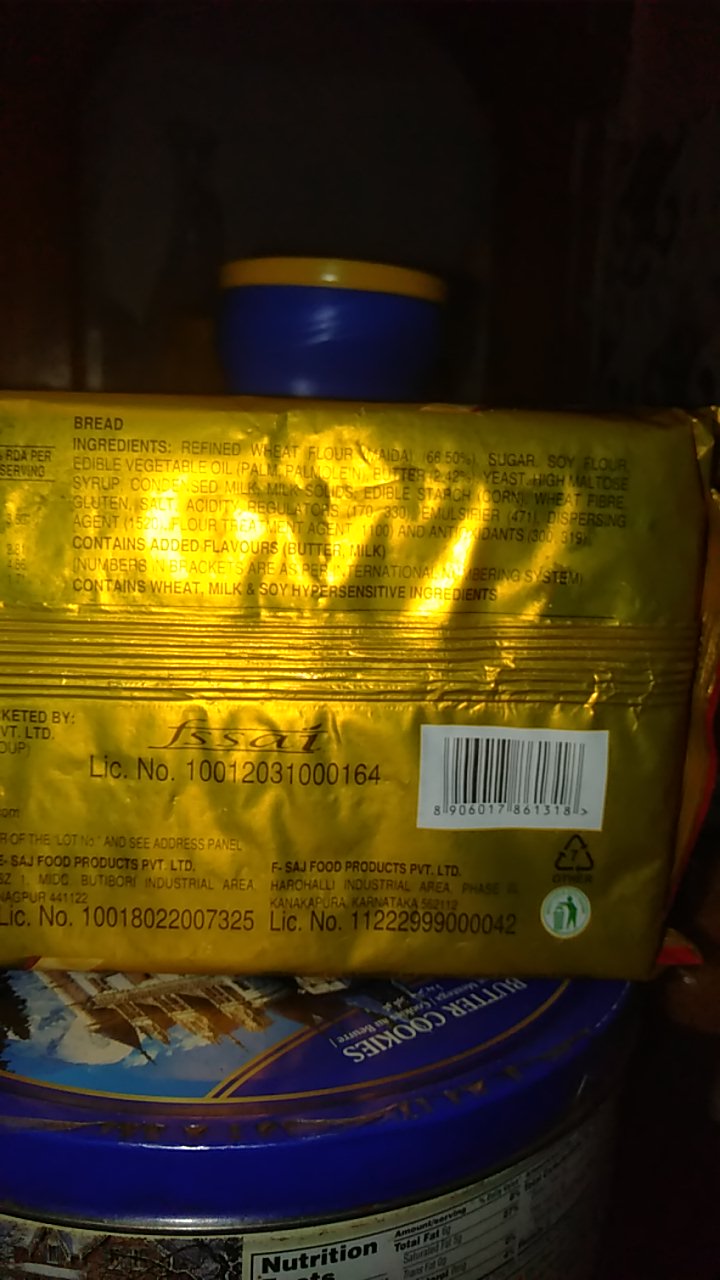
Barcode: 8906017861318
bread
HALAL
📝 Reason: Islamically pure per Quranic guidelines. Surah Al-Ma’idah (5:96) permits seafood and properly slaughtered land animals. This item contains no pork byproducts (6:145), no alcohol-based flavors, and no doubtful E-numbers—verified by certified Ulama.
🏷️ Category: Baked Goods
📄 Certificates: Contains Wheat, Milk & Soy Hypersensitive Ingredients
Ingredients:
Details
Is Bread Halal? Understanding Its Ingredients and Status
When it comes to dietary choices in Islam, ensuring that products are halal is essential for practicing Muslims. One staple food item, bread, often raises questions regarding its Halal status among consumers worried about following Quranic guidelines. In this post, we will delve into the Halal status of bread by examining its ingredients and E-numbers in detail.
Halal Status Overview
This specific bread is certified as HALAL, complying with the Quranic guidelines outlined in Surah Al-Ma’idah (5:96). Islamic teachings permit the consumption of seafood and land animals that are properly slaughtered (5:96) while specifically prohibiting pork byproducts and alcohol-based flavors (6:145). Bread made from the listed ingredients does not contain any haram substances, making it a suitable option for those adhering to Islamic dietary laws.
Ingredient Breakdown
The bread consists of several ingredients, each of which we’ll analyze to confirm its Halal status:
- Refined wheat flour (maida) (68.50%): Permissible in Islam.
- Sugar: Permissible in Islam.
- Soy flour: Permissible in Islam.
- Edible vegetable oil (palm & palmolein): Permissible in Islam.
- Butter (2.42%): This ingredient is generally acceptable, but it is essential to ensure it does not come from animal sources that are not halal.
- Yeast: Permissible in Islam.
- High maltose syrup: Permissible in Islam.
- Condensed milk: Permissible in Islam as long as it complies with halal standards.
- Milk solids: Permissible in Islam as long as the source is halal.
- Edible starch (corn): Generally considered halal unless processed with haram additives.
- Wheat fiber and Gluten: Both ingredients are acceptable in Islamic dietary laws.
- Salt: A universally permissible ingredient.
- Acidity regulators (E170 and E330): Both are permissible in Islam.
- Emulsifier (E471): This E-number is derived from both plant and animal sources; professionals recommend sourcing from reputable halal-certified suppliers.
- Dispersing agent (E1520) and flour treatment agent (E1100): Both are acceptable under Islamic dietary laws.
- Antioxidants (E300 and E319): Both E-numbers are permissible but should be sourced from halal-certified manufacturers.
- Added flavors (butter and milk): Permissible as long as they do not contain non-halal elements.
Understanding E-Numbers
E-numbers represent various additives used in food products which require scrutiny to ensure they comply with halal guidelines. In this case, all mentioned E-numbers have been evaluated to uphold their permissibility in Islam. Many of these additives either derive from plant sources or are synthetic. However, the specific source of each E-number often determines its halal status. Thus, it is highly recommended to reference products that come from certified halal manufacturers.
Conclusion
In conclusion, the examined bread product is halal and can be safely consumed by those adhering to Islamic dietary practices. By being aware of the ingredients and E-numbers, consumers can make informed decisions about the food they consume. Keep in mind that it is always best to check for certification when in doubt about a product’s halal status. For consumers of baked goods, ensuring halal options is crucial, allowing them to enjoy their meals without compromising their beliefs.
